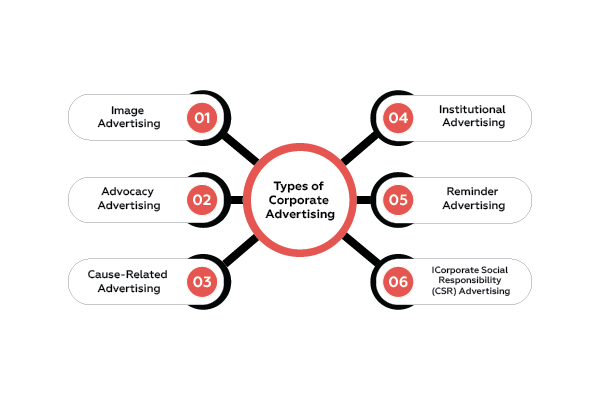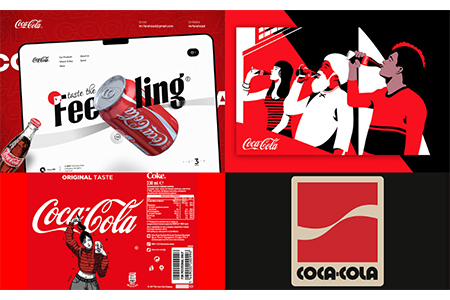Corporate Advertising
When a brand’s name alone can inspire trust and pride, that is the power of corporate advertising at work. It is what turns a company into a symbol people identify with, beyond just what it sells. For brand owners and marketers, this is not about pushing products. It is about shaping how a company is seen by the world—the values it stands for and the role it plays in society.
This kind of advertising builds a company’s reputation over time, creating a deep connection with customers, employees, investors, and the community. It sets the stage for all other marketing efforts, making products easier to sell because people believe in the company behind them.
Let’s explore corporate advertising's meaning, why it matters, and how it can help businesses grow stronger and more respected.
What is Corporate Advertising?

Corporate advertising is communication focused on promoting the company itself, not a specific product or service. It aims to create a positive image of the company as a whole. Instead of highlighting features or prices, it highlights what the company stands for, its values, and its place in the world.
For example, when Tata Group runs campaigns emphasizing trust, integrity, and nation-building, they are doing corporate advertising. It is about the reputation and character of the company as an entity, not just the cars, steel, or technology they produce.
This approach is essential because consumers today want to know who they are dealing with. They look beyond products and want to support companies they can respect and rely on. Even traditional channels like radio advertising can play a powerful role in reinforcing these values, especially when messaging is consistent and authentic.
Types of Corporate Advertising

Corporate advertising types come in many forms, each targeting a different aspect of the company’s relationship with its audiences.
Brand Image Advertising

This type aims to create or reinforce a company’s personality in the public eye. It might focus on qualities like reliability, innovation, or tradition. For example, Infosys has long used brand image advertising to highlight its commitment to quality and global standards in IT services. The message is clear: Infosys is not just a tech company but a leader in ethical business.
Public Advocacy Advertising

Sometimes companies choose to speak up on social or environmental issues. This is public advocacy advertising. Tata Steel’s campaigns on sustainability and community development show how a company can demonstrate care for the environment and society. These ads tell people that the company is more than business—it is part of a larger cause.
Investor Relations Advertising

Investor relations advertising focuses on current and potential shareholders. It provides assurance about financial strength, future growth, and governance. Reliance Industries uses such communication during its annual reports and campaigns to build investor confidence.
Recruitment Advertising

Recruitment advertising shows what it is like to work for a company. It highlights company culture, growth opportunities, and values to attract talent. Many Indian companies, including Wipro, use recruitment campaigns to attract young professionals by showcasing a supportive and innovative workplace.
Cause-Related Marketing Advertising

This links the brand to a social cause or charity. It benefits both the company and the cause by raising awareness. For example, the ITC Group supports rural development projects and uses advertising to highlight these efforts, helping connect the brand to social progress.
Crisis Management Advertising

When a company faces a challenge or negative publicity, it uses crisis management advertising to respond. This helps clarify the company’s position, rebuild trust, and control damage. For example, after some environmental concerns, Vedanta communicated actively about steps taken to ensure sustainability.
These are the main types of corporate advertising companies use to build a strong and trusted brand.
Why is Corporate Advertising done?

There are several reasons why companies invest in corporate advertising. One of the main goals is to build and maintain a good reputation. A strong reputation makes customers more loyal, investors more confident, and employees more committed.
Another reason is to engage with different stakeholders in a way that product advertising cannot. Corporate advertising speaks to a broader audience about bigger ideas. It keeps everyone informed and aligned with the company’s values and direction.
It also helps create trust. In today’s world, where people seek transparency and authenticity, corporate advertising shows that the company is open and responsible.
Lastly, it can support business growth by creating a strong foundation. When people respect the company behind the products, they are more likely to support its future ventures.
Why is Corporate Advertising Important?

Corporate advertising is important because it shapes how the company is remembered and regarded over time. It is not about immediate sales but about long-term impact.
For example, Tata Group’s corporate advertising examples have helped make it one of India’s most respected conglomerates. It builds goodwill that lasts through the ups and downs. When one part of the group faces difficulties, the trust in the whole brand helps keep customer loyalty intact.
It also supports all other marketing efforts. If people respect the company, they are more likely to pay attention to product advertising. This creates a positive cycle where corporate image supports product sales and vice versa.
Moreover, corporate advertising can help companies stay relevant by showing they care about current social, environmental, or economic issues. This connection with society builds goodwill and protects the brand from being seen as out of touch.
How is Corporate Advertising Beneficial to Business?

Corporate advertising brings many advantages to companies, some of which might not be immediately obvious.
● Greater Brand Recognition: When a company builds a clear and positive image, its name becomes familiar and trusted. This recognition opens doors in new markets or industries.
● Stronger Public Perception: Corporate advertising can help change or improve how people view a company. For example, Maruti Suzuki’s campaigns about safety and customer service helped build a reputation beyond just selling affordable cars.
● Better Stakeholder Relations: Good communication through corporate advertising keeps investors, employees, partners, and customers engaged. It creates a sense of partnership and trust.
● Attracting the Right Talent: A company known for good values and culture attracts skilled professionals who want to grow with the business.
● Support During Crisis: Corporate advertising can soften the impact of negative news and help rebuild trust quickly.
● Long-Term Business Growth: By building a solid reputation, companies create a foundation that supports future expansion and product success.
What are the Limitations of Corporate Advertising?
Corporate advertising is not without its challenges. The first is cost. Building and maintaining a strong corporate image requires ongoing investment in quality advertising, research, and communication. For smaller businesses, this can be a barrier.
Second, the results take time to show. Unlike product advertising, which can bring quick sales, corporate advertising builds a reputation slowly and steadily. Measuring this return on investment can be difficult.
Third, companies risk public skepticism. If the advertising does not match reality or feels insincere, it can backfire. People today are quick to spot exaggeration or greenwashing. Brands need to ensure their corporate advertising is honest and backed by real actions.
Examples of Corporate Advertising
Looking at how Indian and global companies use corporate advertising examples offers valuable lessons.
● Tata Group: Their campaigns have long focused on trust, social responsibility, and national pride. This has created a reputation that spans decades and industries. When Tata launched Tata Motors, the positive image of the group helped the new products find ready acceptance.
● Infosys: Their advertising highlights ethics, transparency, and leadership in the tech world. Infosys’s corporate advertising examples have helped it win clients and attract talent globally, far beyond its service offerings.
● Maruti Suzuki: This company has worked hard to position itself as a trustworthy brand focused on safety and customer care. Their corporate advertising examples support their leadership in the Indian automobile market.
● ITC: Known for cause-related marketing, ITC links its business to rural development, sustainability, and social progress. This connection strengthens public goodwill and reinforces its image as a responsible business.
● Reliance Industries: With investor relations advertising, Reliance communicates its financial strength and future plans clearly to shareholders, maintaining confidence in the market.
Corporate advertising is an essential tool for companies looking to build a brand that people trust and respect for the long term. It is not just about selling products but about creating a reputation that supports growth and loyalty.
For brand owners and marketers, corporate advertising offers a way to tell the bigger story about values, responsibility, and commitment to society. At Excellent Publicity, an advertising agency, we help companies craft these stories with authenticity and impact, guiding you to build a brand that stands for something meaningful.
If you want your business to be more than just a name, corporate advertising is the key. And when done right, it can turn your company into a symbol people believe in, remember, and support.
FAQs
Corporate advertising talks about the company’s values, mission, and image. It helps people trust the brand. Product-focused advertising promotes a specific item or service to increase sales. One builds a long-term brand reputation, while the other tries to get customers to buy something right away.
Corporate advertising helps people see the company in a positive way. It shares messages about what the company believes in and what it stands for. These ads build trust, improve reputation, attract investors, and connect with the public by showing what the company does beyond selling products.
Advertising impact means the effect an ad has on people. It checks if the ad grabs attention, stays in memory, or encourages action like making a purchase. It helps companies know if their message worked and whether people noticed or responded to what they shared.
Another word for corporate advertising is institutional advertising. It focuses on the company instead of its products. These ads help build the brand’s image, show its values, and create trust with customers, employees, and investors. The goal is to make the company more respected and well-known.
Corporate advertising shows the good things a company does for people and the planet. It can highlight support for local causes, environmental efforts, or social programs. This makes the company look responsible and caring, which helps build trust and a strong relationship with the public.



